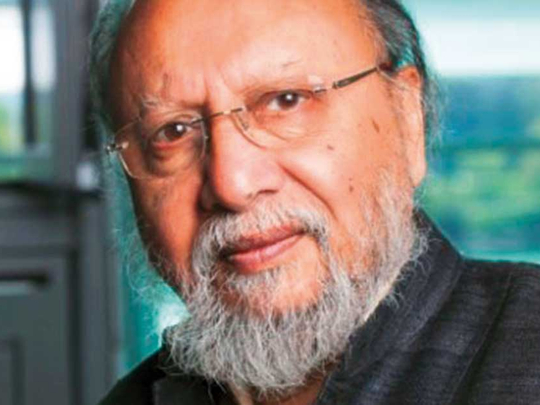
Dubai: According to Ashis Nandy, renowned Indian political psychologist and social theorist, assertion of authority and power constitute a very important vector in incidents of rape – not only in India, but all over the world. However, what has compounded the issue in India is the caste system and its concomitant social politics.
As Nandy explains, “Thanks to democracy, over the years, people in India who were predominantly members of certain castes [or social classes] have moved up the social ladder, in numerical strength and a fair bit of political clout.
So, these members no longer consider themselves as ‘lower caste’ because they feel socially, financially and even politically empowered. Problems arise when people from this category interact with members from the strata that are still considered to be backward or lower in terms of their socio-economic and political standing.”
The friction arising from such interactions due to opposing self-categorisations can lead to violent forms of expression that can include rape, Nandy told Gulf News. The act of rape can also be a form of penalisation of the individual who is considered to be from a class that is beneath them.
Nandy assigns the rising graph of rape in India to the growing divide in perceptions among the social classes aiming to rise up the rungs.
“One ought to remember that both the perpetrator and the victim are from the socially challenged strata. But, while one has ‘made it’ in terms of numerical strength, financial power and political authority, the other is still struggling to get there,” Nandy explained.
Apart from the social classes and the simmering discontent, another significant influencer is the skewed sex ratio in several states in India that has only deepened the malaise, said Nandy.
“The rise in cases of female foeticide in states such as Haryana, Punjab and Rajasthan has resulted in a dangerous gender imbalance, which has often been found to have led to an alarming rise in rapes in these states,” Nandy explained. “Owing to a shortage of girls of marriageable age in many of these states, there have even been reports of women being ‘purchased’ from other states as prospective brides.”
According to Nandy, if boys and men are deprived of enough social contact with the opposite sex, it is bound to have a negative impact on their minds.
Along with the social parameters, Nandy highlighted the prevailing climate in the country as one of the major factors that has bred what he calls a “culture of impunity”.
He pointed to the lynch-mob syndrome that seems to have gripped certain sections of the society in contemporary India.
“You only need to study the number of lynchings that have taken place in India in the last couple of years. There have been 83 cases, according to unofficial sources. We had not heard of mob lynchings since the 1950s in England - until they resurfaced in India.”












